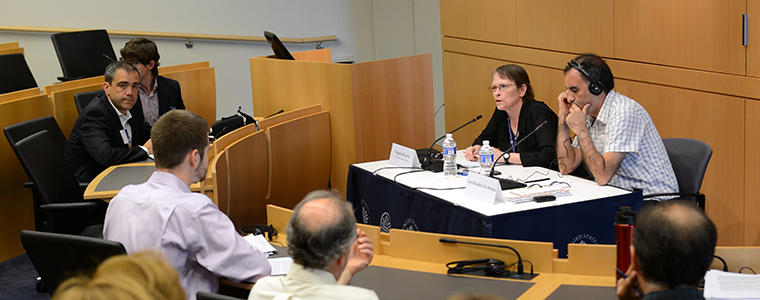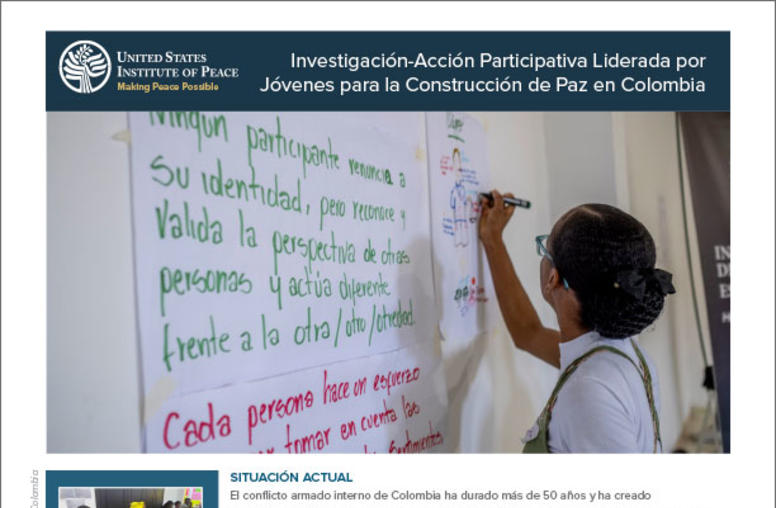The Colombian Peace Process, a discussion with Luis Eduardo Celis
This Colombia Peace Forum event featured Luis Eduardo Celis Méndez, a Colombia journalist with several years of experience following the internal armed conflict and peacebuilding in Colombia.
The event was webcast only.

Prospects for peace in Colombia are looking better than they have in years. If successful, the current peace process between the Colombian government and the Revolutionary Armed Forces of Colombia (FARC-EP) begun in late 2012 and in its 27th round in Havana, Cuba, would put an end to a 50 year-long internal armed conflict that has taken the lives of some 220,000 Colombians, forcibly displaced 6 million more, and destroyed countless livelihoods. Exploratory talks with a second insurgent group, the National Liberation Army (ELN), are in an exploratory phase.
Luis Eduardo Celis Méndez, a Colombia journalist with several years of experience following the internal armed conflict and peacebuilding in Colombia, writes regularly for the Colombian journal, Semana, and the new online journal, Las 2 Orillas, and has been a consultant for Corporación Nuevo Arco Iris and Fundación Paz y Reconciliación. Mr. Celis spoke about current developments at the peace table in Havana, where the issues of victims, truth-telling, DDR, and the end of the conflict were currently under discussion. He also addressed the status of the ELN process, which he monitored closely, and the prospects for peace talks with that group. Dr. Virginia M. Bouvier, Senior Program Officer for Latin America at the U.S. Institute of Peace, moderated the discussion.
Interviews with Mr. Celis and the event video archive are below:


